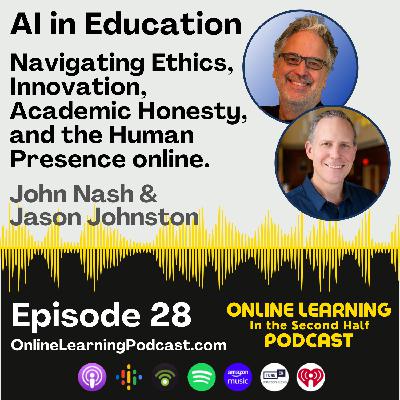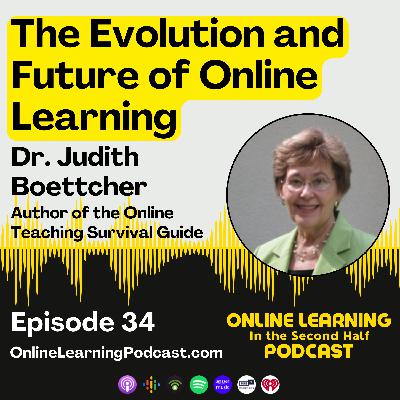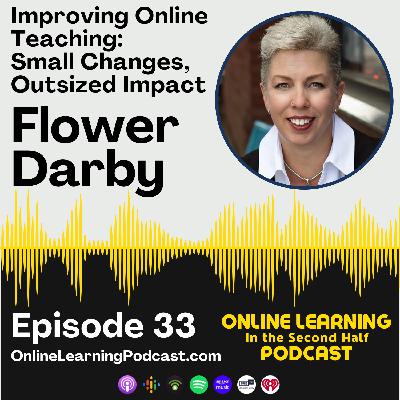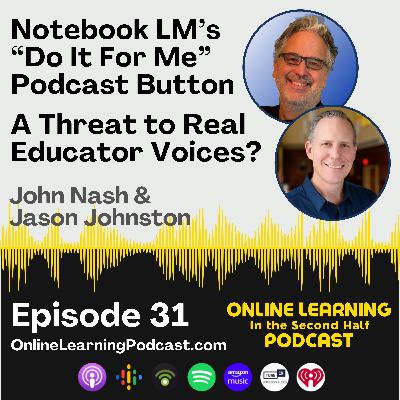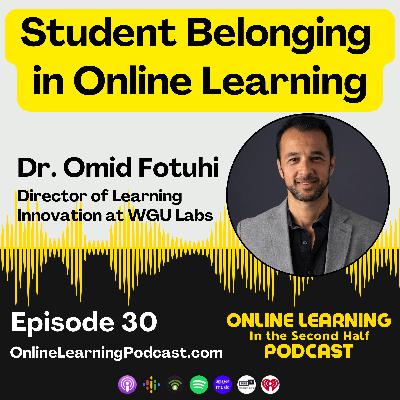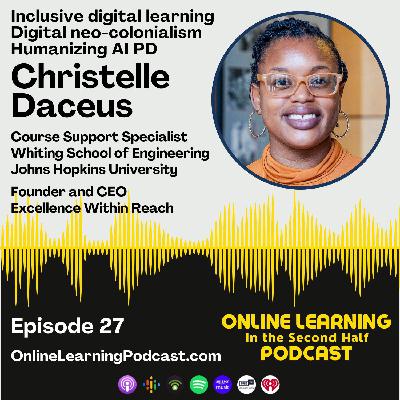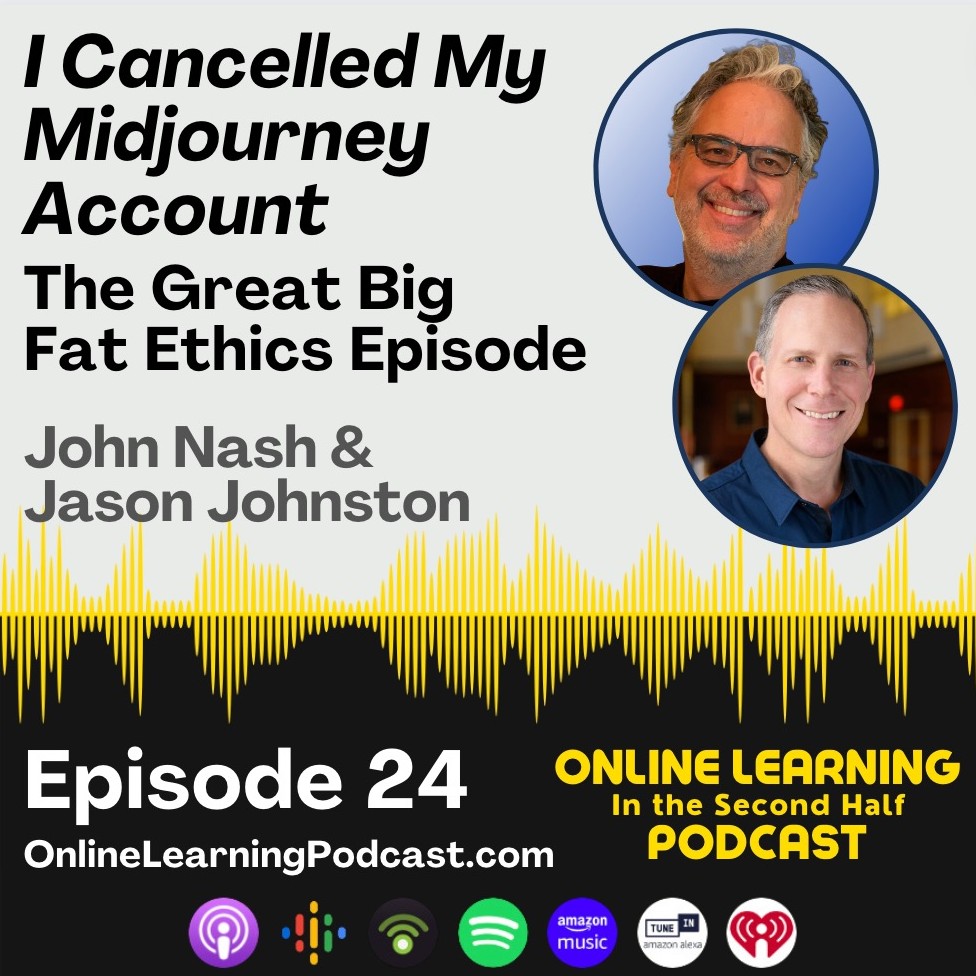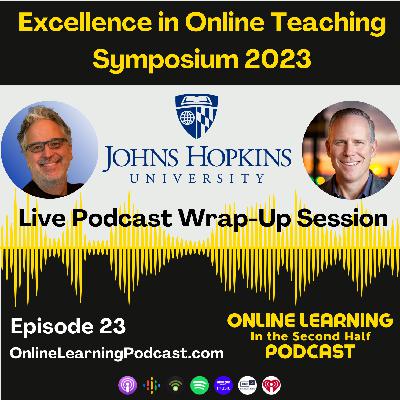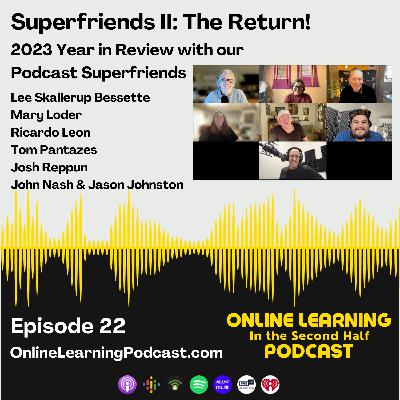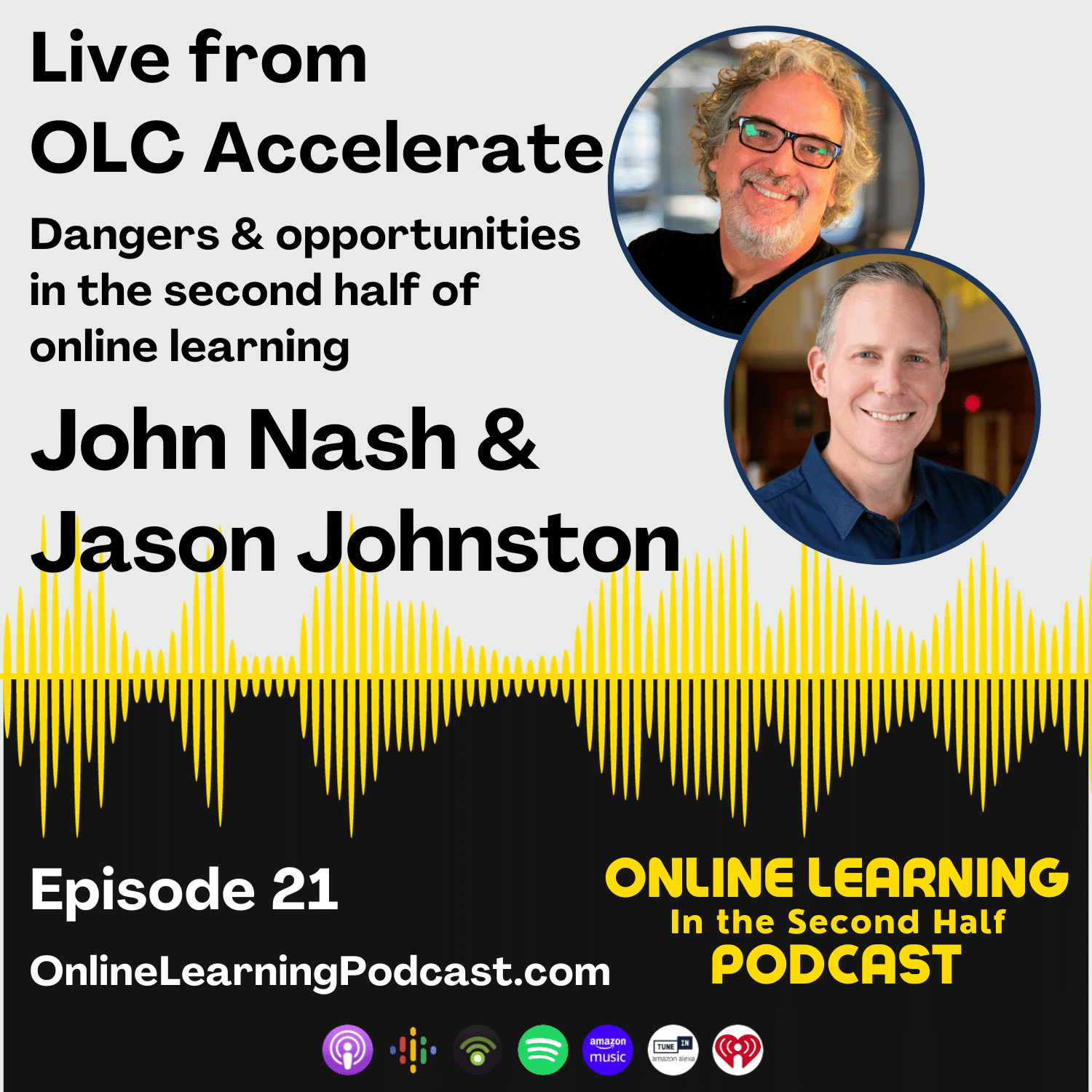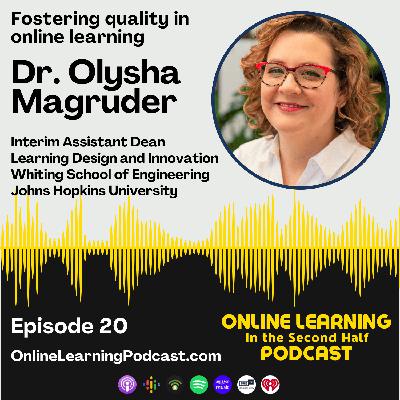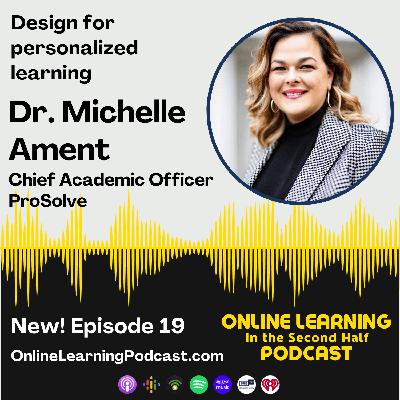EP 28 - Spring 24 Check-in focusing on AI in Education: Navigating Ethics, Innovation, Academic Honesty, and the Human Presence online.
Description
In this Spring 2024 check-in, John and Jason talk about AI-created voices, the importance of human presence in online education, the challenges of AI detection like Turnitin, and insights from their spring conferences and presentations. See complete notes and transcripts at www.onlinelearningpodcast.com
Join Our LinkedIn Group - *Online Learning Podcast (Also feel free to connect with John and Jason at LinkedIn too)*
Links and Resources:
- Eleven labs AI voice generation (on OpenAI)
- John's deck from his presentation at ASBMB - AI as an instructional designer and a tutor.
- The Ezra Klein Show - Interviewing Dario Amodei
Theme Music: Pumped by RoccoW is licensed under an Attribution-NonCommercial License.
Transcript
We use a combination of computer-generated transcriptions and human editing. Please check with the recorded file before quoting anything. Please check with us if you have any questions or can help with any corrections!
False Start:
John Nash: Okay, we'll get AI to fix that.
Jason Johnston: You can maybe get AI to fix that.
Intro:
AI Speaker 1: Hi, I’m not John Nash and I’m not here with Jason Johnston.
AI Speaker 2: Hey, not-John. Hey, everyone. And this is Online Learning in the Second Half, the online learning podcast.
AI Speaker 1: Yeah, and we are doing this podcast to let you all in on a conversation we’ve been having about online education for the last few years.
Look, online learning has had its chance to be great and some of it is, but some of it isn’t. What are we going to do to get to the next stage, not-Jason?
AI Speaker 2: That’s a great question. How about we do a podcast and talk about it?
AI Speaker 1: That sounds great. What do you want to talk about today?
AI Speaker 2: I’ve got a big question for you not-John. Are you ready?
AI Speaker 1: Okay, shoot.
AI Speaker 2: If we carefully and lovingly create a script for an online learning video (or podcast) but then have AI-created voices read that script. Are we humanizing or de-humanizing online learning?
AI Speaker 1: I’m just a text-based large language model chat-bot and I don’t think I’m equipped to answer that question. Maybe we should bring in the real John and Jason? John? Jason? What do you think?
John Nash: I think it's a great question, real Jason.
Jason Johnston: Yeah, real John. It's it's good to see you in real Zoom. and that is a great question that this our chatbots pose for us today. And I think that yeah, I'm not, what do you have any initial responses to the question if we use AI tools to lovingly create our scripts for online videos or for podcasts, are we dehumanizing or are we, humanizing these experiences
John Nash: Well, it's a classic academic answer, isn't it? It depends.
Jason Johnston: Depends.
John Nash: But I think used exclusively, I think it does dehumanize. I think used judiciously and with an agenda to humanize, I think they could be helpful, but the jury's probably out because it's all context, isn't it?
Jason Johnston: Yeah, definitely context and it gets into some philosophical questions as well, when we talk about humanizing. There is the act, there is the perception, right? And so, this goes back to some of the things that are going on even with AI telehealth, and so on. Or AI therapy.
If the people don't know, does it matter? Does it feel human? Have they had the experience of being with a human, even though it wasn't a human? And then does it matter? I guess there's a ethical question about, It matters because we want to be transparent and we want to be honest with people and so on.
But if at the end of the day they feel like that they've been in a humanized situation and it gives them maybe a positive outcome for them.
John Nash: Yes. Yes. Yes. I think we discussed that last year a little bit. Yes. So essentially what we're saying is that if we fake them into feeling belonging, then that's okay.
Jason Johnston: yeah. As long as maybe we're not being dishonest with them. Or maybe not, I shouldn't say maybe. As long as we're not being dishonest with them. I think that would be the cutoff for me. If people knew what was going on.
John Nash: Okay. Fair. I think so. You say you're about to engage in a scenario that we've created that is designed to help you feel more belonging with regard to the activities we're doing as a group, maybe in our class. We used artificial intelligence, generative AI to create some of that, and we'd like you to engage in it, and then let us know.
I think that would,
Jason: Yeah, I think so. Yeah. So, we started with
this.
This was a, there was a moment which you could invoke Eleven Labs this company through Chat GPT, you could invoke their GPT to create voices for you. And I was just playing around with it and came up with these, this intro script because I thought it would be fun just
Jason Johnston: to, Just to
Jason: start off, I'm not planning to replace you, John, just so you know.
There's, I have no intention on replacing you. I'm, I enjoy our conversation too much to and respect you too much as a scholar and as a friend to replace you with just so you know, in case any concern or question.
John Nash: I have been trying to get fired from this podcast and I thought this was my chance, but labeled redundant. Isn't that what they say?
Jason Johnston: Well, I know you wanted to take the summer off, so maybe, maybe it could be just be like a, maybe a temporary replacement. We could get your voice. Yeah. Summer John, we could do summer John with yeah, that'd be all right. Yeah.
John Nash: Well, your new dog, Kevin could take over the podcast for the summer. Yes.
Jason Johnston: Yeah. Yeah. He would have some great things to add. I'm sure. The the really interesting thing about this, I'm not saying that this intro is perfect by any means, but, and we've talked about this a couple times, but just how quickly things are moving right now with AI and how even a year ago, that the emotions maybe weren't there with a AI created voices that are starting to come into itself.
I think some of the early pushback for AI voices that I have found from an education standpoint is like, well, students aren't going to like it. It sounds too fake. And and so in that way, it's just not going to be a great experience for them. Well, we may be moving past that now in terms of those kind of arguments against AI voices in, in online education.
But now we're moving towards, well, maybe it's fine for things. It doesn't matter. Like with, obviously we need to think about teaching presence, right? Community of inquiry. creating a great educational experience for students, having a teaching presence within the online class is super important, makes a difference for students and for teachers. I'm in a hundred percent on all of that. However, still within that, we pay voiceover people to do some slides that are going to be evergreen for us that maybe last beyond a teacher, or maybe are shared among a number of teachers teaching different sections or whatever. And so I think that we're probably just moving to a place where we're going to see more and more of this and online teaching.
And I think maybe it's going to be okay. What do you think?
John Nash: It reminds me of our conversation in the middle or end of our ethics episode this calendar year where we were discussing I'll call it scope creep or it will job creep.
Jason Johnston: Yeah
John Nash: I think it depends. Is this going to be a replacement technology, or If there are professionals in your circles who are already doing this work and then a new person comes along who's not it's not their station to do that work, but the technology will allow them to do it.
Will they be stepping on toes? That's what the first thing that comes to mind.
Yeah, I think there's questions to be answered at every level, as we've talked about before in terms of contextual ethics on this within your departments. And I was thinking about that this last week. I have the advantage at University of Tennessee of having people, we have humans that can do these things, right?
Jason Johnston: So it is more of that kind of question about, well, I shouldn't be using AI when we already have humans to do things. But this last week I was at a conference and talked to a lot of people that are a team of one, right? They're expected to produce multiple courses and expected to be high quality.
And they're maybe working at a community college or other colleges that are just not as well funded. And I think it maybe is another different answer to the question, maybe in some of those areas. What do you think?
John Nash: do. And I think you're right. I think and again, we're in that world where we say it depends. Many professors are teams of one who are managing course loads. they don't have ready access to a center for teaching and learning or a set of instructional designers or production level tools.
And so they want to create some evergreen material. Maybe they think their voice isn't up to lecturing for 15 minutes on vid

